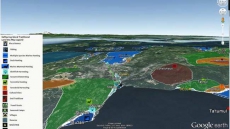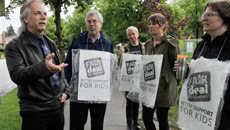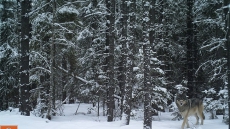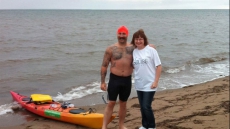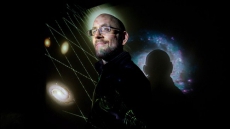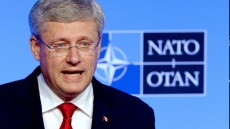TORONTO - Canada ranks higher than 10 other developed nations in scientific literacy, or the ability of citizens to read and fully comprehend a lengthy article about science in a newspaper, according to a report released Thursday by the Council of Canadian Academies.
The report said 42 per cent of Canadians "grasp basic concepts and understand general media coverage of scientific issues."
That is higher than Sweden at 35 per cent and the U.S. at just under 30 per cent. Japan was last at about five per cent, it said.
The findings are based on a 2013 survey of 2,000 Canadians and an assessment of relevant international data, according to the authors.
The data was not all conducted at the same time. The data on Japan was collected in 2001, the European data in 2005, and as science literacy has been increasing generally all over the world in the past decade, these rankings may not be perfect, said Arthur Carty, chair of an expert panel involved in the report and executive director of the Waterloo Institute for Nanotechnology.
The survey measured Canadians' attitudes towards science and tested their knowledge with simple true-or-false questions, such as "electrons are smaller than atoms" (answer: true).
The report — Science Culture: Where Canada Stands — is the most comprehensive look at public scientific engagement, attitudes and knowledge since 1989, its authors said.
In the past 25 years, Canadians have become more knowledgeable and engaged on scientific issues, though fewer people believe science holds the key to radically solving social problems, the report said.
Ninety-three per cent of Canadians polled said they have an interest in "new scientific discoveries," ranking first among 35 nations, it said.
A third of respondents reported visiting a science or technology museum in the past year, and almost a quarter said they had signed petitions or joined street demonstrations on scientific issues such as oil pipelines, nuclear power or biotechnology.
The survey also found interest in science was more prevalent among younger, wealthier and well-educated respondents, and higher among men than women.
Scientist and broadcaster Jay Ingram said that while he's heartened that Canadians do relatively well on measures of scientific literacy, it's also important to remember that 58 per cent of Canadians do not have basic scientific knowledge.
"While 87 per cent [of survey respondents] knowing that the . . . earth goes around the sun is pretty good, that still leaves 13 per cent of Canadians who haven't absorbed the astronomical knowledge of several centuries ago," said Ingram, who was among 14 experts who compiled the report.
The panellists also examined the results of standardized science test scores of 15-year-olds, administered worldwide by the Organization for Economic Co-operation and Development. Canada ranked 10th out of 265 countries in 2012.
These scores have declined since 2006, said Carty, the panel chair.
"That raises some concerns about future performance and particularly our competitiveness vis-a-vis the science and technology giants of Asia," said Carty.
It is important that Canada create and maintain a "science culture," defined by the panellists as a society that "embraces discovery and supports the use of scientific knowledge and methodology," the report said.
Leadership and vision are important in supporting science in Canada, but Ingram said the ultimate goal should be the fostering of a science culture that endures regardless of political leadership or policy.
The report also suggests targeting inequalities in access to science resources, in order to make the discipline inclusive and accessible to all Canadians.
"It's all about ensuring that individuals in all segments of society have the opportunity to share in the wonder and excitement of science," said Marc LePage, panellist and president of Genome Quebec.
"Perhaps the hockey analogy is that now we're in the quarter finals," said LePage. "The next step for us is to shoot for the Stanley Cup."
The Council of Canadian Academies describes itself as a non-profit organization that "supports evidence-based, expert assessments to inform public policy development in Canada."
In the survey conducted for the group, EKOS Research polled 2,000 Canadians via landline, mobile or online response. EKOS says it has a margin of error of plus or minus 2.2 percentage points 19 times in 20.
